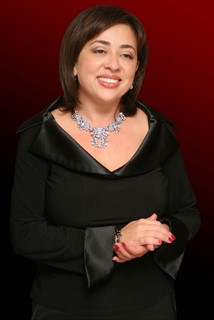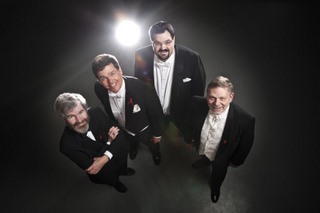The Core and More
In the May issue I quoted Simon Wynberg, artistic director of the Royal Conservatory’s ARC Ensemble: “The more intriguing question is whether we are gradually moving away from the concept of a ‘core repertory,’” he said. What he saw emerging was “a new, broader and younger audience who do not have an inbuilt allegiance to the pillars of repertory, but are curious to explore the vast range of music that is now so readily and instantly available.” As I study the websites of the many Toronto and area music presenters I notice evidence of many different kinds of interesting and imaginative programming.
Toronto Symphony Orchestra
While the “core repertoire” is still – as one would expect and probably as it should be – the principal focus of artistic director, Peter Oundjian’s programming, there are interesting forays into unusual programming. On November 10, for example, using Tchaikovsky’s short and appealing Marche Slave and Prokofiev’s Lieutenant Kijé Suite as points of departure from the core repertoire, he makes Janácek’s infrequently performed Glagolitic Mass and a contemporary work, Krystof Maratka’s Astrophonia for Viola and Orchestra the centre of the programme.
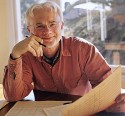 One of Oundjian’s most successful innovations with the TSO has been the New Creations Festival, which opens this season on March 2 with the iconoclastic Evelyn Glennie as the soloist, in what the TSO’s website describes as a “spectacular new percussion concerto” by Canadian composer Vincent Ho. The programme will also include John Adams’ popular Short Ride in a Fast Machine and his “vast, exhilarating Harmonielehre.”
One of Oundjian’s most successful innovations with the TSO has been the New Creations Festival, which opens this season on March 2 with the iconoclastic Evelyn Glennie as the soloist, in what the TSO’s website describes as a “spectacular new percussion concerto” by Canadian composer Vincent Ho. The programme will also include John Adams’ popular Short Ride in a Fast Machine and his “vast, exhilarating Harmonielehre.”
Sinfonia Toronto
Almost as forgotten as the composers whose music the Royal Conservatory’s ARC Ensemble has been performing and recording, the Czech composer Vita Kapralova has been brought to the attention of the world by the Toronto-based Kapralova Society. On March 11, Sinfonia Toronto with pianist Sara Buechner will perform the Canadian premiere of her Partita for Piano and Strings. The rest of the programme is also unusual: Turina’s Rapsodia Sinfonica, Brahms’ Variations and Fugue on a Theme of Handel, and Marjan Mozetich’s lovely Fantasia in its orchestral version. Interestingly, works by Mozetich will be performed on two other Sinfonia Toronto programmes this season.
Mooredale Concerts
Turina’s Rapsodia Sinfonica will be played earlier in the year by I Musici de Montréal, with Canadian piano soloist Katherine Chi, at the opening concert of Mooredale Concerts’ season on October 3. She will also perform the solo tour-de-force Symphonic Metamorphosis on Themes from Johann Strauss’ “Die Fledermaus” by Leopold Godowsky. The core repertoire part of the programme will be the beautiful string serenades by Elgar and Tchaikovsky.
Royal Conservatory
Another fine pianist to look out for this season is Pierre-Laurent Aimard, who will perform in Koerner Hall on May 1. The New York Times described him as “astounding” and “an elegant and exciting performer.” Perhaps the repertoire of the concert says it all: Wagner’s Albumblatt in E-flat Major, Berg’s Piano Sonata in B Minor, Scriabin’s “Black Mass” Sonata No. 9 in F Major, and Liszt’s Piano Sonata in B Minor.
Music Toronto
This summer the Pacifica Quartet played with the legendary pianist Menahem Pressler, for Toronto Summer Music. They’ll be back on December 9 to play three string quartets in a Music Toronto concert. While the quartets by Schumann and Shostakovich are probably “core repertoire,” the quartet Voices, by the American composer Jennifer Higdon, was written in 1993, so it’s likely to be new to most people.
On February 17 Music Toronto will present Trio Voce, three expatriate Canadians who now live and work in the Chicago area. The cellist in the trio is Marina Hoover, the founding cellist of the St. Lawrence String Quartet (which, incidentally, will open the Music Toronto 2010-11 season on October 14). Again the programme will combine core repertoire (piano trios by Beethoven and Shostakovich) with contemporary: the Toronto premiere of Jonathan Berger’s Memory Slips. Berger will be part of the performance as a commentator, combining a review of current research on music, memory and aging with personal and historical anecdotes and examples.
Amici Ensemble
If there were an annual prize for creative programming, I’d give it this season to Amici. Each of their four concerts has a theme to which each piece on the programme is related. Just to give an example, the theme of their fourth concert on April 3 is “In the Shadow.” (Is the shadow Beethoven’s or is it Mozart’s?) The programme will begin with Beethoven’s Twelve Variations for cello and piano on the popular “Ein Mädchen oder Weibchen” from Mozart’s opera The Magic Flute – certainly not Beethoven’s best known work, but probably core repertoire for cellists.
The rest of the programme consists of compositions by Spohr, Webern and the recently rediscovered late romantic Austrian composer, Carl Frühling (1868-1937). While the Amici Ensemble is a clarinet, cello, piano trio, they frequently invite guest artists to join them, which, of course, introduces a lot of variety to their programmes as well as extending their repertoire almost indefinitely. The guest artist at the April 3 concert will be the young mezzo-soprano Wallis Giunta, who will perform Spohr’s Six German Songs Op. 103, for voice, clarinet and piano.
Talisker Players
It’s easy to forget that there’s more to the United States than red-neck yahoos and Neanderthal foreign policy. It is a highly polarized society, which has produced scores of artists in all disciplines. Kudos to the Talisker Players for celebrating the cultural depth of our southern neighbour with a concert called “The Revolutionary Rhythms and Imagery of American Poets,” on October 27 and 28. The programme consists of settings by seven contemporary composers, including Toronto’s Alexander Rapoport, of poetry by American poets.
Roy Thomson Hall
Last but not least, Roy Thomson Hall has a terrific season planned, which will open on October 26 with yet another chamber orchestra, the Venice Baroque Orchestra, in a programme entitled “The Seasons Project.” It’s an artful blend of old and new, combining Vivaldi’s The Four Seasons and Philip Glass’s Concerto No. 2 for Violin and Orchestra: “The American Four Seasons,” with soloist Robert McDuffie, who premiered the work just last December with the TSO. If you missed it then, you now have a second chance!
This gives some idea of the programming breadth and depth of the coming season. At best, it’s an incomplete overview of what is coming. The profiles in the Blue Pages of the October WholeNote will, of course, fill out the picture somewhat – as I will also be trying to do in my columns.
Allan Pulker is a flautist and a founder of The WholeNote who currently serves as Chairman of The WholeNote’s board of directors. He can be contacted at classicalbeyond@thewholenote.com.


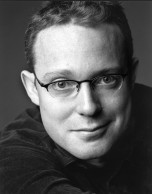
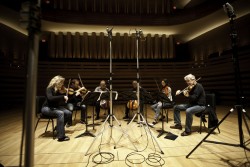
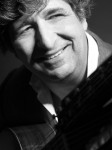
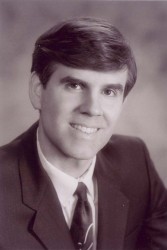
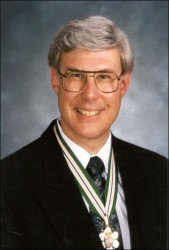
/Lang Lang 2.jpg) International Touring Productions brings the Slovak Sinfonietta, conducted by Kerry Stratton, to Toronto and six other cities in Southern Ontario in late April and early May. With the orchestra will be two pianists: Haiou Zhang, who will perform Beethoven’s
International Touring Productions brings the Slovak Sinfonietta, conducted by Kerry Stratton, to Toronto and six other cities in Southern Ontario in late April and early May. With the orchestra will be two pianists: Haiou Zhang, who will perform Beethoven’s /Martin_Beaver.jpg) A frequent visitor to Toronto, thanks to Music Toronto, is the Tokyo String Quartet. While the quartet’s genesis was in the 1960s at the Toho School of Music in Tokyo, and it has been quartet-in-residence at Yale University since 1976, it also has a strong Toronto connection through Martin Beaver, its first violinist. When you hear the Tokyo String Quartet, you are hearing not only one of the best string quartets in the world, but also “The Paganini Quartet,” a set of Stradivarius instruments named after the legendary virtuoso Niccolò Paganini, who acquired and played them during his illustrious career. The Tokyo String Quartet will perform Beethoven’s
A frequent visitor to Toronto, thanks to Music Toronto, is the Tokyo String Quartet. While the quartet’s genesis was in the 1960s at the Toho School of Music in Tokyo, and it has been quartet-in-residence at Yale University since 1976, it also has a strong Toronto connection through Martin Beaver, its first violinist. When you hear the Tokyo String Quartet, you are hearing not only one of the best string quartets in the world, but also “The Paganini Quartet,” a set of Stradivarius instruments named after the legendary virtuoso Niccolò Paganini, who acquired and played them during his illustrious career. The Tokyo String Quartet will perform Beethoven’s 